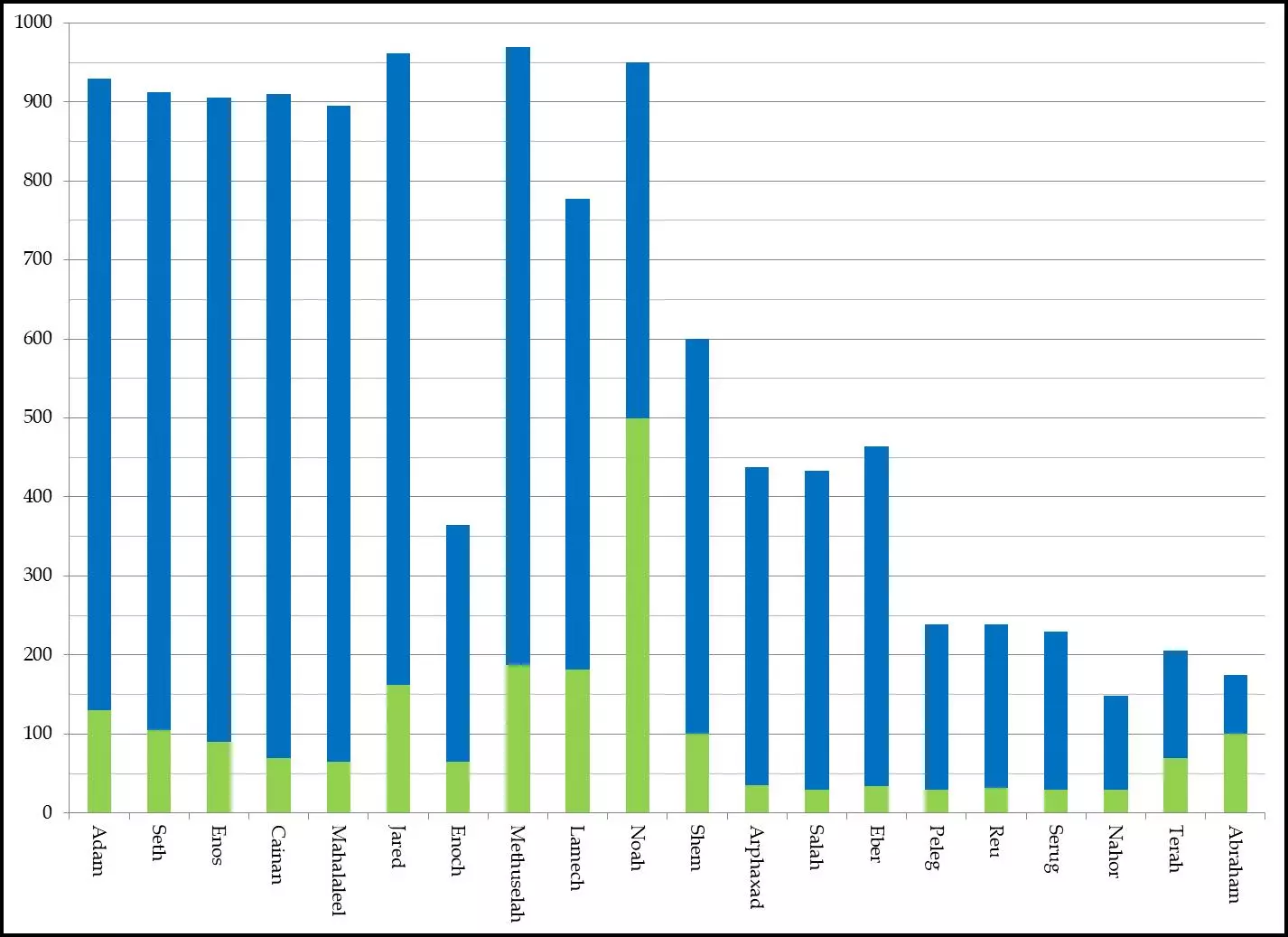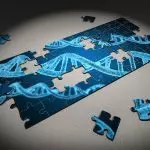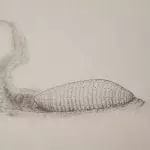Some people have viewed very long human lifespans in the Bible to be mistaken, or at least fantastic and difficult to believe. Could people have really lived over 900 years? That seems so foreign to us. However, let’s look at long lifespans from a rather different perspective. While we do have plenty of Biblical reasons to believe that the early chapters of Genesis are intended to be historical, I think this topic deserves a more scientific look.
One of the main reasons I believe the ages in the chrono-genealogies of Genesis 5 and 11 are to be taken at face value is that the decline of lifespans after the flood looks exactly like what we would expect from a biologically-caused decline in lifespans. There are several points to note here that make these ages look authentic.
Lifespans Decline Gradually
The ages given don’t immediately drop from 900’s to 100’s. If the pre-flood ages were inflated or they were counting months instead of years, as some have alleged, then we should see an immediate drop from the inflated ages to the real ages when they switch from counting months to counting years. We don’t see that. The data show a gradual decline.
Plus, if you’re counting months as years, some of the pre-flood patriarchs were as young as 65 when they fathered a son. If you divide that by 12 to convert months to years, that’s about 5.4 years, which isn’t old enough to be a father. This explanation doesn’t make sense. They have to be years.
Lifespan Decline Follows an Exponential Decay Curve
The ages don’t just decline gradually. They follow an exponential decay curve. It’s not a straight line. Lifespans decline rapidly at first, then more slowly, and then begin to level off. This is the kind of curve we see with many natural phenomena. Take a look at Figure 1 below to see how lifespans show exponential decay after Noah.

The Data Are Messy
While the ages decline overall, they have some odd variations that look like what you get in real data. If someone were inventing a decline in ages, they would likely make the ages consistently decline, with each man living a shorter lifespan than his father. Yet we have multiple instances where a son lives longer than his father.
We can ignore Enoch’s lifespan since he did not die, but was taken to heaven by God. Yet Lamech had an unusually short lifespan for pre-flood people (only 777) while his son Noah lived 950 years. Eber lived longer than his father and grandfather. Nahor lived just 148 years, but his son Terah lived over 200.
When you work with real data, as I have, you learn to recognize what real data look like. These don’t look like invented ages. They have the messiness you get with real data.
Lifespans Decline after Noah
People have noted the drop in lifespans corresponds to the flood, but in particular, it corresponds to Noah, who became a father at 500 years old. Noah’s advanced age at fatherhood explains the decline in lifespans because he would have passed on a large volume of new mutations to his descendants.
Biology gives us some clues to how this works. In a woman, all the eggs she will ever have are produced before she is born. There are only a few cell divisions between generations on the maternal side, and thus only a few copies are made of the mother’s DNA. Her eggs can get old, but they don’t undergo constant cell division. Thus, the mother doesn’t pass on many mutations to her children, regardless of how old she is.
In contrast, a man produces new sperm constantly from puberty onward, which means continually copying his DNA. If a man has children when he is older, there have been a lot more copies made of his DNA. This means there are more and more chances for mutations to build up as he ages. Noah’s advanced age at fatherhood would have added a large load of mutations to all of his descendants. That’s everyone who lived after the flood, including you and me.
We also know from observational genetics that the age of the father has a profound impact on the number of mutations passed to the children. For example, a 2012 study in the journal Nature found that the age of the father at the time of the child’s conception is the largest factor in how many mutations a child receives and that mutations accumulate exponentially as the father grows older. In this study, the number of mutations passed on by the father doubled every 16.5 years. So not only do mutations get more numerous as the father gets older, they build up faster and faster the older he is.
In the case of Noah, he was 500 years old when he began having his sons. If you compare his age to the ages of previous men when their children were born (see Figure 1), it is much higher. Noah was more than 300 years older than any of the other men in this genealogy when he became a father.
Remember that age has an exponential effect on the number of mutations passed on. Exponential growth adds up quickly. Thus, modern genetics research shows us that we would expect Noah to have passed on a load of mutations to his sons that was many times larger than for previous generations. Noah’s sons had a lot more genetic mistakes than the rest of the pre-flood population. This explains the significant drop in the lifespan of Shem (and Ham and Japheth, we presume) compared to previous generations.
Inbreeding After the Flood Fixes Mutations
Not only did Noah pass on a large number of mutations to his sons, but they also passed them to their children and grandchildren (and added some as well). The broken genes in Shem, Ham, and Japeth became the founding genetics for all of humanity after the flood. The generations after the flood had to marry close relatives since the descendants of Noah were the only people on the planet.
Inbreeding makes the genetic situation much worse. Many mutations are recessive, meaning that they only show up if you have the same mutation from both your mother and your father. The chances of a child having two copies of the same mutation greatly increase when his mother and father are closely related. Thus, inbreeding after the flood would have fixed many of the mutations from Noah in the population.
Basically, all the good copies of the genes were replaced with broken ones in everyone. This further decreased lifespans after the flood. Noah’s grandsons and great-grandsons had only half of his lifespan.
Inbreeding After Babel Again Decreases Lifespans
If we assume that Babel took place during the life of Peleg due to the note in Genesis 10:25 which indicates that a division took place during his time, then we also see another drop in lifespans at Babel. Arphaxad, Salah, and Eber had lifespans in the 400’s, but with Peleg and his descendants, it declines to the 200’s.
Again, with the people dividing up into small groups and spreading out over the Earth, inbreeding would take place. Thus further fixes mutations in the population and decreases lifespans. Once the human population grows and inbreeding stops, lifespans become stable.
Conclusion
What is so compelling about the Biblical lifespans is that the biology behind human reproduction predicts that we would see precisely the kind of lifespan decline that the recorded ages show. How could an ancient writer have known that? The story in the text fits the data. You can see the events play out in their lifespans. The only reasonable explanation is that these are accurate historical records.
I know this can seem hard to believe. If you start with the assumption that humans have always been more or less as they are now, then longer lifespans in the past are an anomaly that sounds almost like a miracle. On the other hand, if you begin with the history given in the Bible, it fits with what we know of biology and genetics very well without requiring any miracles.
When you think about this topic biblically, it shouldn’t really surprise us that humans once lived much longer. Humans were created to live forever. It is reasonable to expect that a perfect creation cursed because of sin to degrade and die would take a long time to do so. Thus, human lifespans were very long in the beginning because they were so close to the original creation and not yet genetically degraded. It is our short modern lifespans that are the odd thing we must explain, not the original long lifespans.
When we apply science to the ages given in the Bible, they fit what we would expect from genetics. An accumulation of mutations due to Noah’s old age at fatherhood combined with inbreeding after the flood caused everyone to inherit matching copies of broken genes that have limited our lifespan to a small fraction of what it once was. Humanity survived through Noah, but it would never be the same again.








This is the perfect supplement to Steve Schramm’s article on the topic, posted several weeks ago. It’s nice to see the scientific arguments being presented as well as theological ones. Once again, it shows how science and theology, when used properly, work hand in hand to verify the claims of Genesis. Keep up the good work!
I’m also planning a look at the historical evidence for long lifespans in the ancient past. So stay tuned.
That sounds fascinating! I can’t to see it!
I always believed that the decline in life span was caused because the waters above the earth, which filtered the sun’s rays, were gone (fell to earth as rain in the flood). This meant that the more damaging sun’s rays were causing the body to age faster.
However, what you say about DNA copying also makes sense.
Even those scientists who would like to see the Vapor Canopy Theory upheld recognize there are problems with it. For it to have been possible, other things, like the amount of sunlight reaching Earth would have had to be significantly reduced. Most scientists therefore have abandoned this interpretation of the “waters above the Earth.”
And, Lindsay sure does make sense!
If the decline in lifespans were due to an abrupt change in environment at the time of the flood, we should have seen a sharp drop in lifespan rather than a gradual decline. If people can’t survive hundreds of years in a world without a canopy, then how did so many generations after the flood do so? The data don’t fit very well with an external cause. It looks to be an internal cause of the decreased lifespans.
The canopy theory has been largely abandoned by creation scientists because of multiple intractable problems. It was a very creative idea that warranted some scientific consideration, but it hasn’t worked out when we examined it more closely with science. Like all science, creation science has theories and models that don’t work out and have to be replaced with better ones.
This shows how important it is to keep up with creation science research. It has been decades since major creationist organizations abandoned the canopy theory.
Any theory for declining lifespans must explain both Noah’s and Shem’s. Noah lived the third-longest recorded lifespan, but a third of his life was after the supposed canopy was condensed in the Flood. And explanations that just talk about the post-Flood population bottleneck don’t explain Shem’s lifespan drop. He was born before the bottleneck.
The canopy theory is wrong for another reason. Water is not very good at stopping damaging UV rays. You can get sunburned on a cloudy day and while swimming. But water vapour is an excellent greenhouse gas, better than CO₂. So we would have been cooked if there had been enough water vapour to condense to more than a metre or two deep.
See also https://creation.com/living-as-long-as-methuselah
I love how clearly you present both sides of the case here, Lindsay! While you’re busy answering all the other questions, I’d love to hear your thoughts about the idea of increased radioactivity immediately following the Flood.
Several different creationists have presented the idea that much of Earth’s radioactive material was either produced by the Flood or brought to the surface during that year. And Dr. Cuozzo’s statement that some caves are still closed to the public because of high levels of radiation seems convincing from my viewpoint.
It is possible that increased radioactivity at the time of the flood also contributed to mutations and thus to the decline in lifespans. I don’t think we have to rely on that because the genetic situation of Noah’s advanced age already explains the big picture. But radiation could certainly increase mutations and make the situation worse.
I also expect that the effect of radiation, if any, was probably not large for at least a couple of reasons. For one, the occupants in the ark were surrounded by large amounts of water and water is great protection from radiation. Secondly, we know that Noah lived 350 years after the flood and Shem lived 500 years after the flood, which seems difficult to explain if they had been exposed to high levels of radiation. Noah’s lifespan, in particular, does not seem to have been affected at all by the events of the flood. He lived longer than Adam.
Mrs. Harold makes a convincing case for a low impact on humans. My guess is radioactive materials were still relatively rare post-Flood (albeit somewhat more common than today), so they wouldn’t have had a significant effect. Additionally, humans may have lived away from areas where this was more common. However, it’s certainly possible that radioactivity had a more considerable effect on certain animals, perhaps even contributing to extinction in some cases. Of course, more research needs to be done in this area before a definite answer can be given.
Excellent article. The Bible makes it clear that sin is a corruption, life-robbing influence. So it is no curiosity that we should live shorter and shorter lives the more sin has ravaged our bodies. I can’t understand why so many, especially Christians, would balk at the belief of the long ages of our ancestors in the Bible. We’ve had thousands of years of sin and corruption breaking us down. Great writing! William
I find everything I’ve been reading interesting and informative, I appreciate all the hard work to get the word out ro everyone, thank you, can’t wait to read your magazine, I’m 72 and always learning
I wonder wondering if there was a solar flare, or a change in polarity that triggered the flood. I’ve also heard there was a large meteorite strike on the North American ice cap that used to exist. Personally, I think it was a combination of environmental and genetic changes. There is historic reference (Josephus) that refers to a crystalline canopy, rather than a vapor canopy. There could also have been massive ice rings (rings like Saturn has). Canopy atmospheres are more common than not in our solar system.
Could there be a correlation between the food eaten because Genesis 1:29 prescribed God’s original or perfect diet while the decline after the flood Gen.9 maybe God’s permissive diet as there were no more vegetation?
In Gen.1:30 even God’s original diet for all beast is only grass.
How about Isaiah’s book saying that the lion will eat grass like the ox so that nobody could harm God’s holy mountain when the knowledge of the Lord covers earth? Please enlighten me as my mom (82) due to being picky eater lived longer than my dad (66). Mom did not die of illness, had no maintenance meds but had been choked by a very small piece of mango. She might have survived had she not locked herself in our bathroom until we broke the windows to get her out but still DOA at hospital. My dad has lots of health issues because his diet is mostly animal products.
My husband also ate like my dad died at 59 after series of major organ health issues. I switched ro vegan diet after I prayed for God’s guidance in 2005. This May 2023 I am on my 18 year of this diet, with no more meds and health ussues I had before being vegan.
Plants were the only food originally because there was no death before sin (plants are not alive, Biblically speaking). After the Flood, God gave permission to eat meat.
I think it is very misguided to attribute the long lifespans of early people to diet for multiple reasons.
1) God gave the permission to eat meat. Did He hate Noah’s descendants and want them to die young? That doesn’t seem right. I think God gave permission to eat meat because humans would need it in a harsher post-flood world and as their genomes degraded over time.
2) Noah lived 1/3 of his life after the flood and yet he lived longer than Adam (age 950). This doesn’t appear to be an environmental cause like diet or it would apply to Noah also.
3) People today don’t live to be 900+, even if they eat a vegan diet their whole life. There’s obviously something else going on to shorten human lifespans.
4) There are several lines of evidence that humans need animal products for optimum health. Obviously, this can be overdone. If you’re eating a meat-heavy and unbalanced diet that is causing health problems for you, a vegetarian or vegan diet may be an improvement. However, animal fat is important for long term brain health. In particular, we need DHA and EPA, which are omega-3’s found only in animal foods. We can convert plant omega-3’s like ALA to DHA and EPA to some degree, but many people convert them too slowly to meet the body’s demand, especially during childhood brain development or as they age.